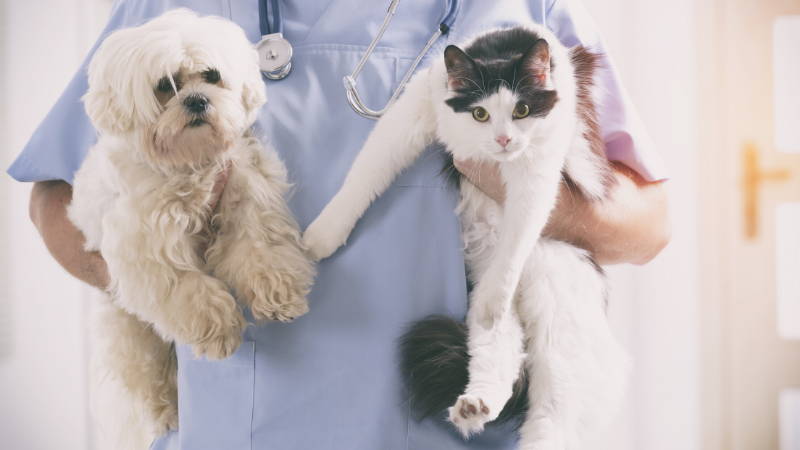.png?lang=en-CA&width=800&height=450&ext=.png&maxsidesize=800&resizemode=force)
COVID-19 has changed the world for us. What does it mean for your local veterinary clinic?
The decision to declare vet practices an essential service has differed across the country as our provincial governments choose which businesses are required for healthy day-to-day living. The Canadian Veterinary Medical Association and their provincial veterinary counterparts across Canada hold the view that veterinary practices do provide essential services to Canadians, and they have expressed this view with government authorities.
A logical argument can be made for maintaining a stable veterinary presence in the community given the requirements to maintain safe and hygienic food supplies from farm to table, food production inspection, and the veterinary consultation role in biohazard prevention and monitoring. As far as the companion animal side, during this time of social distancing and concern for robust mental health within the population, access to urgent and emergency care for pets will remain a driving issue for many citizens.
You may notice changes, some downright uncomfortable, the next time you visit your neighbourhood veterinary hospital.
Here’s what to expect at the vet clinic
· Calling for an appointment will take longer. The receptionist will ask extensive history questions over the phone or send you an email form to complete regarding your pet’s current problem.
· The receptionist may ask questions about your own health. You could be asked about your own travel history or if you or anyone you’ve had contact with has been sick. Please be honest. Your vet has ways to work around this, but their first priority is keeping their staff safe and healthy.
· You may not be allowed in the clinic. Many clinics are going to a “drive-thru” model where staff will come out to your car to pick up your pet or deliver food and medications. Call the clinic when you are in the parking lot, and they will come to you as soon as someone is available. There may be exceptions to this protocol in the case of compassionate care such as euthanasia appointments.
· Ensure all cats and small dogs are in carriers and larger dogs are wearing snug-fitting collars or harnesses. This is to facilitate safe transfer of your pet from your car to the clinic.
· Your clinic may cancel elective appointments and procedures. Electives are things like vaccine appointments for adult pets, nail trims, dental cleanings, and spays and neuters. Medical supplies like surgical masks and gloves are in short supply across Canada, and veterinarians are doing their part to help our “human” medical-field friends.
· Your clinic can advise you about when your pet needs to be seen. First vaccination appointments for puppies and kittens over eight weeks-old are critical. Urgent situations like vomiting and diarrhea or coughing and sneezing that last for more than 24 hours, toxin exposure, painful conditions, and anything else that makes you worried about your pet should be triaged through a phone call to your veterinarian.
· Cash may not be an accepted form of payment. Be prepared to use a contactless payment system for debit and credit card transactions. Your clinic may be able to offer electronic transfers. When you set up your appointment, ask what forms of payment are okay.
· You may not be able to get your normal supply of food or prescription medication. Many clinics are limiting purchases to a six- to eight-week supply to prevent hoarding and ensure there is enough for everybody.
· Your clinic may offer telephone or video calling for certain recheck appointments. There may be a fee for this service. Please understand that your vet clinic is doing everything they can to keep your pet healthy while keeping their doors open.
A message from Dr. Colleen Fisher, Petsecure’s Veterinary Medical Director
“I know it’s tough. As a behaviourist and a veterinarian, I generally encourage the presence of my clients in the exam room to minimize patient stress. However, your veterinarian is doing everything they can to keep you and their staff safe while being available for your pet’s medical needs. This is not normal times and social distancing is critical to prevent spread of COVID-19. I can tell you that your pet will be cuddled more, given extra special treats (remind staff about food allergies!), and treated with all the love and care that your veterinary staff has always offered your furry kids. Nothing about their heartfelt dedication to their patients has changed. You have my promise.”
